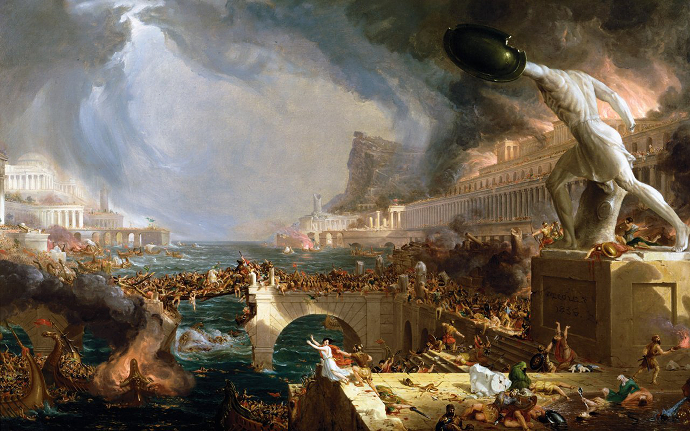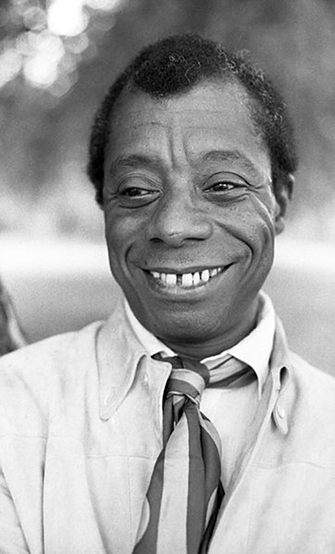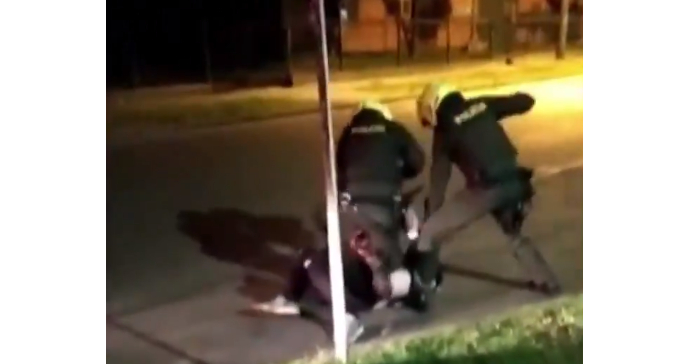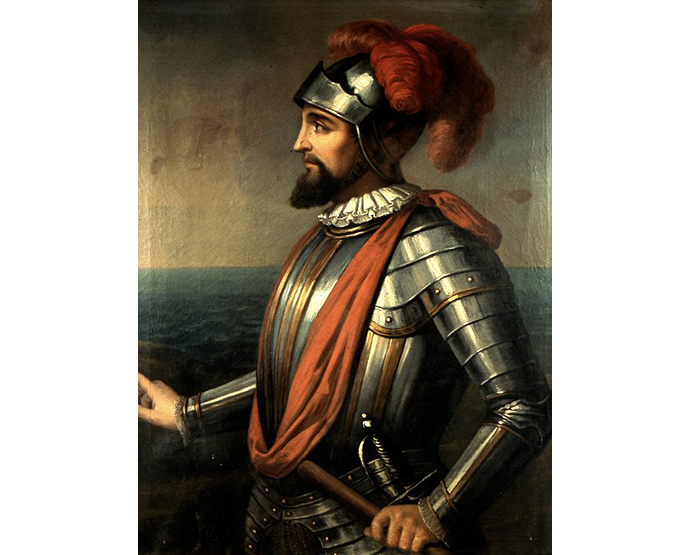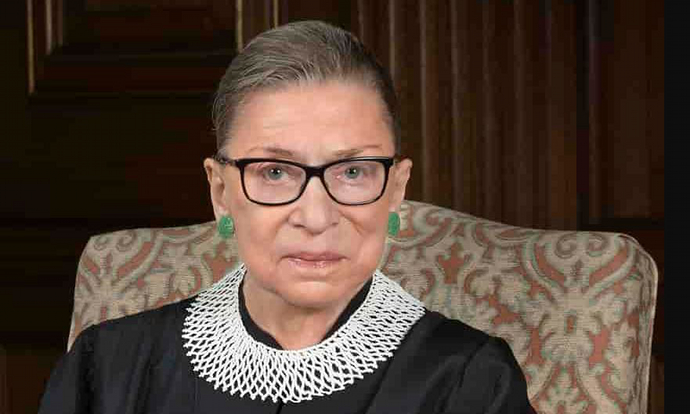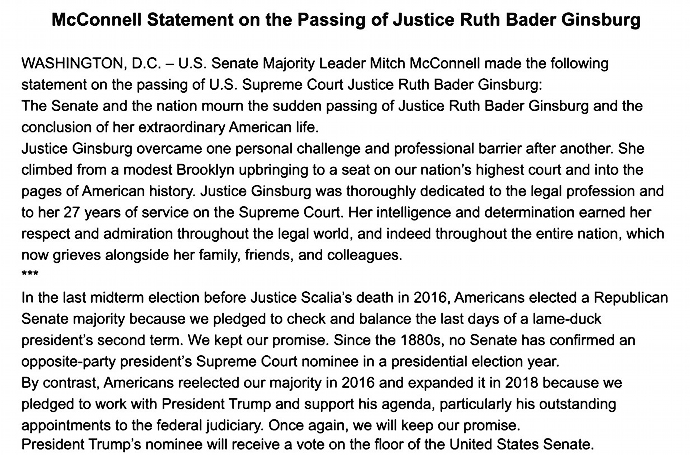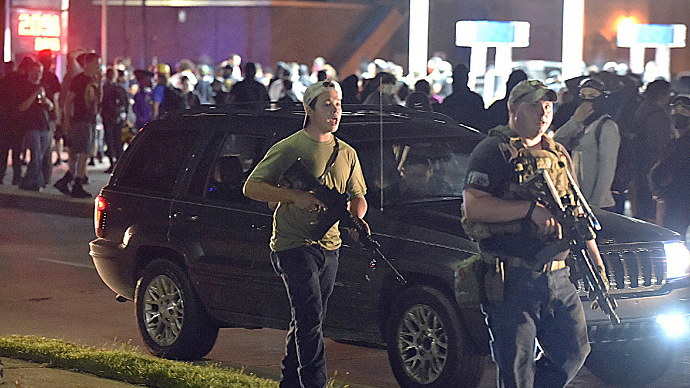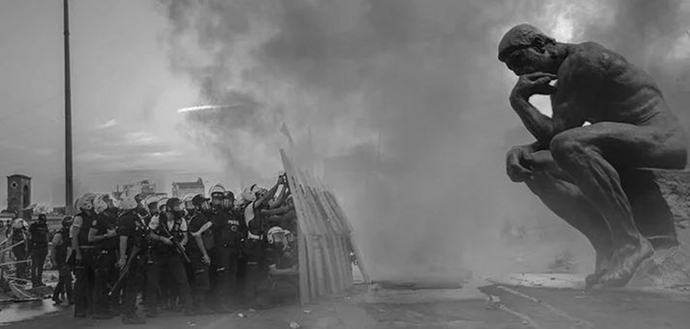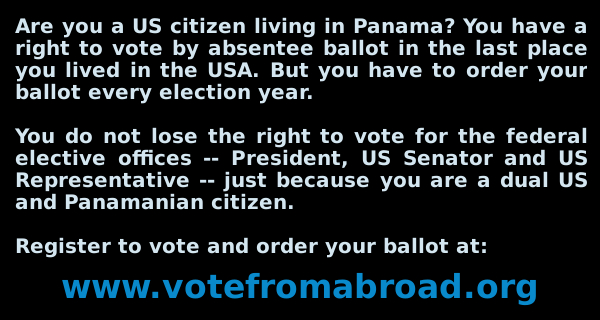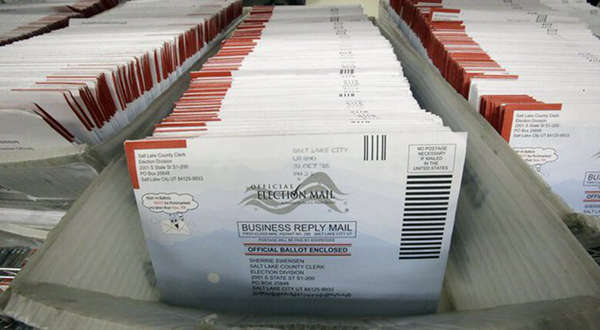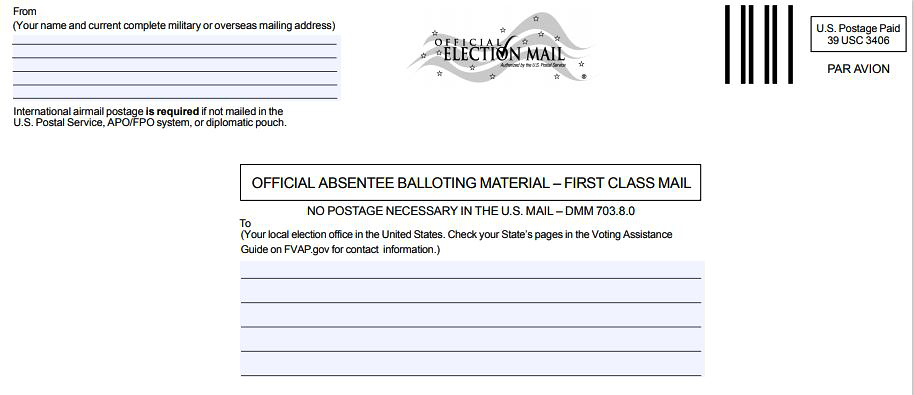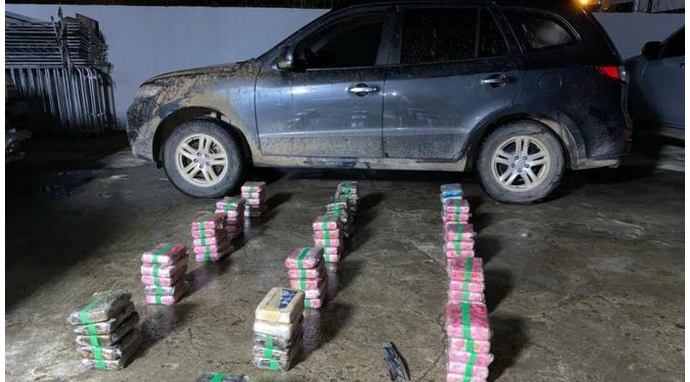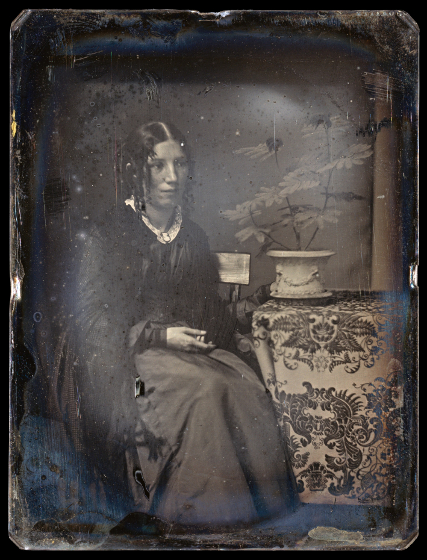Retrato anónimo de Vasco Nuñez de Balboa (1475-1517).
Apuntes cronológicos sobre Vasco Núñez de Balboa
por Olmedo Beluche
El 25 de septiembre de 1513, desde un cerro, Balboa es el primer europeo en avistar el Mar del Sur, hoy oceáno Pacífico. El 29 de ese mes, “toma posesión” en nombre de la Corona española de ese mar. Por sus incontables crímenenes, el intelectual kuna Aristeides Turpana le llama “Asco” Núñez de Balboa.
Ofrezco estos apuntes para ayudar a la comprensión histórica del acontecimiento del cual se conmemorarán pronto los 500 años, el “avistamiento” o “descubrimiento” para los europeos del Mar del Sur (oceáno Pacífico) y del hombre que fue su principal protagonista. De Vasco Núñez de Balboa hay varias biografías muy buenas, aunque aquí me he basado en la de Charles Anderson. También muchos historiadores reputados y cientistas sociales han analizado las implicaciones del suceso para la historia humana. Esta cronología apenas pretende ser un esquema que ayude a captar al hecho y al hombre en perspectiva. Advierto que es muy probable que haya incurrido en omisiones importantes, pero inconscientes.
1475. Nace en Jerez de los Caballeros, Extremadura. Sin embargo, todos los historiadores señalan que no hay datos fehacientes sobre su infancia y nacimiento. Fecha de nacimiento se establece, segun Anderson, a partir de afirmacion de Las Casas de que, en 1510, cuando huyó de La Española, tenía 35 años de edad. Según Anderson los primeros cronistas (P. Mártir, Oviedo, Las Casas y Gomara) atribuyen lugar de nacimiento a Badajoz. Felipe de la Gándara (1677) afirma que nació en Galicia y era natural de Badajoz (?). Es en 1830 cuando Washington Irving (inglés) y Manuel José Quintana (español) aseguran que nació en Jerez. Sitio de nacimiento que es aceptado oficialmente a partir de 1913 en el cuarto centenario del “descubrimiento” del Mar del Sur.
Entre 1475 y 1500. En su juventud, sirvió como paje del señor de Moguer, don Pedro de Portocarrero.
Oct. 1492. Cristóbal Colón “descubre” América, llegando a la isla de Guanahaní (San Salvador). Recorre las Bahamas, Cuba y Haití.
1493. Se establece una colonia española permanente en Haití (La Española).
1 de agosto de 1498. Tercer viaje de Colón. Llega por primera vez al continente (Tierra Firme) en la zona de Paria (Venezuela), recorre la costa deVenezuela, isla Margarita, Trinidad. Descubriendo oro y perlas, lo que va a motivar las siguientes expediciones y la ambición de los españoles por viajar al Nuevo Mundo.
1497-98. Juan Cabot y su hijo, Sebastián, recorren la costa de América del Norte.
1496. Bartolomé Colón (hermano de Cristóbal) funda la ciudad de Nueva Isabela (Santo Domingo).
1499. El rey Fernando, motivado por el descubrimiento de perlas del tercer viaje de Colón, rompe compromisos de derechos de éste adquiridos en las Capitulaciones de Santa Fe (Granada) en 1492 y autoriza expedición de Alonso de Ojeda a la región de Venezuela. Acompañan a Ojeda el piloto Juan de la Cosa y el cartógrafo Americo Vespucio. Ojeda navegó el golfo de Venezuela, Cuquibacoa hasta el cabo de la Vela (La Guajira) y de allí retornó a La Española el 5 de sept. de 1499. Retorna a España en julio de 1500.
1499. Casi inmediatamente a Ojeda se autoriza expedición de Pedro Alonso Niño, piloto de Colón en el tercer viaje, a emprender la misma ruta. Retornó a España, por Galicia, en mayo de 1500, antes que Ojeda (pues no paró en La Española) cargado de oro y perlas. Según Anderson es el primer viaje que deja amplios beneficios financieros. Lo cual le costo la cárcel a Niño pues los funcionarios de la Corona opinaban que escondía parte del tesoro para no pagar la totalidad del 1/5 que le correspondía al Estado.
Octubre de 1500. Rodrigo de Bastidas, opulento notario del barrio de Triana, Sevilla, obtiene licencia para una expedidión a la misma zona de Venezuela. Se le autoriza a adquirir bienes de todo tipo, incluyendo perlas, oro, joyas, metales, especies de animales, esclavos, etc. Deducidos los gastos de viaje, que corren por su cuenta, ¼ para el Soberano y el resto para él. En este viaje se embarca Vasco Núñez de Balboa. El piloto nuevamente es Juan de la Cosa.
1500. Expedición de Bastidas sale de Cádiz, se dirige a Las Canarias y desde allí a la costa occidental de Venezuela. Llegan a una “isla verde”, que no se identifica. Al llegar al Cabo de la Vela (punto límite explorado por anteriores) siguen hacia occidente. Llegan a Río Hacha (Guajira), Santa Marta (donde los indios se adornaban con coronas).
Marzo de 1501. Llegan a desembocadura de un gran río que llamó Magdalena. Bahía de Cartagena (nombrada así posteriormente), isla Barú, islas Arenas, y archipiélago de San Bernardo. Dsembocadura río Sinú. Isla de Tortuga (Tortuguilla actual). Punta Caribana, entraron al golfo de Urabá (Darién) pensando que era un estrecho y cuando echaron anclas a solo cuatro brazas de profundidad se dieron cuenta que era agua dulce, por ello denominaron inicialmente Golfo Dulce (g. de Urabá). Según Anderson todo este trayecto permitió a Balboa conocer las tribus de la región que luego le sería util, pues supo que los indios de la costa oriental del Urabá usaban flechas envenenadas y los de la costa occidental no.
1501. Bastidas sale del g. de Urabá y se dirige a cabo Tiburón y explora la costa norte de Panamá y llega a donde luego seria fundada Nombre de Dios. De aquí zarpan hasta Jamaica (no colonizada aún) con problemas en los buques que hacían agua porque un molusco (teredo navalis) se comía el casco de las naves. De ahí hasta el islote de Contramaestre a una legua de La Española. zarpan pero un vendaval les hace retornar al islote. Como los buques hacen mucha agua se dirigen al puerto de Jaragua (suroeste de la Española, hoy Haití). Lugar donde finalmente se hundieron los buques de Bastidas. Murieron muchos indios que traían encadenados y se perdió parte del botín de oro y perlas pero la mayoría fue salvada. Bastidas dividió los hombres en tres grupos que por caminos disitntos se dirigieron a pie hasta Santo Domingo. En esta ciudad, el gobernador Bobadilla (que había arrestado y deportado a España a los hermanos Colón), arresta a Bastidas y le decomisa el cargamento aduciendo que comerciaba ilegalmente y le deporta en 1502 arrestado a la Península. El hecho casual del hundimiento hizo que Balboa se quedara en La Española.
1502. Cuarto y último viaje de Colón. En sentido contrario a Bastidas recorre la costa caribeña de Centroamérica hacia el oriente, llegando hasta inmediaciones de Nombre de Dios, donde se entera por los indios que Bastidas estuvo antes.
15 de abril de 1502. Llega a La Española una gran flota con nuevo gobernador que reemplaza a Bobadilla, el comendador Nicolás de Ovando.
29 de junio de 1502. Colón en cuarto viaje retorna a Santo Domingo, pero Ovando no le permite atracar, pese a que el Almirante avisa de la llegada de un huracán. Ovando no hace caso y permite el zarpe de la flota con destino a España, 30/6/1502. Se perdieron más de 20 buques y 500 personas, entre ellas el exgobernador Bobadilla (y otros enemigos de Colón), doscientos mil castellanos en oro, incluída la mayor pepita encontrada en La Española. Sólo se salvó el pequeño buque “Aguja” (considerado el peor) con 4000 pesos oro y bienes confiscados a Colón. Las Casas consideró el ciclón como un castigo divino. El buque de Colón se salvó porque se refugió en una caleta. También se salvó el buque en que viajaba deportado Bastidas con su botín incautado porque volvió a Sto Domingo. Cuando llegó a España finalmente le levantaron los cargos.
1502-1509. No consta que Balboa recibiera pago por botín de Bastidas. Pero el gobernador Ovando le otorgó tierras y un repartimiento de indios, en Salvatierra de la Sabana, al suroeste de La Española. No hay relatos (según Anderson) de cómo fue la vida de Balboa en La Española.
9 de junio de 1508. La Corona española divide mediante un “asiento” Tierra Firme en dos zonas administrativas: Veragua y Nueva Andalucía, divididas por una línea imaginaria así: desde la costa occidental del golfo de Urabá hacia el poniente, Veragua, cuyo gobernador sería Rodrigo de Nicuesa, con asiento en Nombre de Dios (Panamá al este de Portobelo); y desde la margen oriental del g. de Urabá hacia el oriente, Nueva Anadalucía, cuyo gobernador sería Alonso de Ojeda, con asiento en San Sebastián (al oeste del g. de Urabá). Ambos asentamientos van a tener problemas desde el principio por la resistencia de los indígenas y ambos gobernadores van a resultar heridos por las flechas.
Noviembre de 1509. Zarpan para el contiente, con una diferencia de 8 días (entre el 14 y el 22 de noviembre). La peor parte la llevó Ojeda que primero entró en la bahía de Calamar (Cartagena) atacó a los indios (Calamari) y obsesionado por el oro, entró varios kilométros (contra el consejo de Juan de la Cosa, que le acompañaba). Entraron a una gran población (Turbaco) que estaba vacía y empezaron a saquear, hasta que los indios volvieron y les atacaron estando dispersos. Solo se salvó Ojeda y otro acompañante, muriendo el resto de los españoles incluido la Cosa. Vuelve al barco y se mudan a Urabá (San Sebastián) donde siguen bajo ataque indígena, e incluso es herido el propio Ojeda. En mayo de 1510, desesperado, Ojeda retorna por refuerzos a La Española, pero va a dar a Cuba, que no estaba colonizada. No volvería más a este continente. Deja a cargo del poblado a Francisco Pizarro. Este dato es importante porque el papel de Balboa para instalar un asentamiento seguro va a ser decisivo posteriormente. Se cre que Balboa intentó partir con Ojeda y no se le permitió, en noviembre de 1509, cuando parten ambas expediciones.
A Nicuesa no le fue mejor. Guiado pr el piloto Ribero y por las descripciones del Cuarto Viaje de Colón, buscó el río Veragua viajando de este a oeste. Lo paso y llegó hasta la laguna de Chiriquí y sus islas, donde intentando caminar por tierra fueron atacados por los indios. Se mueven luego hacia el este e intentan fundar el pueblo Nuestra Señora de Belén en la desembocadura del río Belén, pocos kilómetros al este del río Veraguas. Los indios huían llevándose consigo los alimentos. Muchos españoles morían enfermos o por los indios. Se retiran de Belén. Más hacia el este llegan a la bahía de Porto Bello (bautizada así por Colón). Nuevas penalidades, los indios matan a unos 20 españoles, y se mudan a otra bahía que conocía uno de los marineros que estuvo antes con Colón, que llamaban puerto de Bastimentos. Se dice que Nicuesa, cansado y hambriento dijo: “Paremos aqui en el nombre de Dios!” (Anderson, p. 61) y se quedó con ese nombre, el 9 de noviembre de 1510. La mayoría de los hombres moría porque no aguantaban el clima tropical. Según Las Casas (citado por Anderson), nadie moría sino cuando bajaba la marea. Al final sólo le quedan 200 de los 580 hombres que habían zarpado de La Española. Pero, aunque al principio Nombre de Dios fue abandonada por Sta. María, en unos años los españoles retornarían a ella abandonando Acla y Sta. María. Y esta se convertiría en ciudad colonial junto con Panamá en el Pacífico.
Septiembre de 1510. El bachiller Martín Fernádez de Enciso, alcalde mayor de Ojeda, parte de Santo Domingo para llevarle ayuda. Parte con un buque y un bergantín, 150 hombre armados, yeguas, cerdos y demás provisiones. Allí va escondido Balboa, unos dicen que en una vela y otros que en un barril. Anderson opina que ambas cosas pueden ser ciertas porque paso de la vela al tonel. Le escondió su leal amigo Bartolomé Hurtado (al que premirá bien posteriormente). Descubierto por Enciso, éste amenaza con dejarle en una isla desierta, pero Balboa alega a su favor la expriencia en la expedición de Bastidas (otros le apoyan). Se salva. “Dios tenía determinado de hacer otra cosa dél, por su mal” (dictaminará años después sobre este incidente el Obispo de Chiapa).
Sept. 1510. Pizarro abandona San Sebastián con dos bergantines, uno de los cuales zozobra y todos perecen. Con los últimos 40 hombres retorna a Calamar, donde encuentra a Enciso. Enciso al principio desconfía de Pizarro, creyendo que se había amotinado y no cree que es todo lo que queda de la expedición de Ojeda. Pizarro y sus hombres ofrecen todo el oro que tenían a cambio de que se les permita volver a La Española o irse a Veragua con Nicuesa. Pero Enciso no lo permite pues teme perder su inversión y cargo de alcalde. Vuelven a San Sebastián. La mala suerte acompañaba a Enciso, su buque choca contra un banco de arena y se hunde con todas las provisiones y caballos. Con los dos bergantines siguen a San Sebastián para encontrarlo quemado por los indios. Enciso con 100 hombres lanza un ataque en busca de oro y comida y resultan muchos heridos por los indios caribe, huyendo de vuelta al poblado. Se dice que, abatido, intentó irse con unos cuantos leales, abandonando a los demás, lo cual le hizo perder autoridad. Querían volver, pero no podían embaracar 180 hombre en dos bergantines. “Dejemos estas costas mortíferas de donde el mar, la tierra, el cielo y los hombres nos rechazan”, decían (Anderson p. 49).
Sept. 1510. En el marco de esta crisis es cuando empieza a destacar el carácter y la experiencia de Balboa. Recordó que en el viaje de Bastidas habían encontrado en la otra orilla del g. de Urabá un pueblo “mui fresco i abundante de comida, i que la Gente no ponía Jerva (Yerba o veneno) en las Flechas”. Eran las tierras del cacique Cémaco (aunque la ciudad y los indios se denominaban Darién). Pero también la otra orilla (occidental) del Urabá era Veragua perteneciente a la jurisdicción de Nicuesa. Se encomendaron a la “Nuestra Señora de la Antigua” (venerada en Sevilla), Enciso hizo la invoacación, y se enfrentaron a 500 indios a los cuales vencieron. Se enfrentaron las lanzas y flechas de madera de los darienes contra las espadas metálicas y mosquetes de los españoles. Allí mismo fundaron un poblado que denominaron Santa María la Antigua en agradecimiento a la virgen que les dio la victoria. El saqueo además produjo 10 000 castellanos en oro y prendas (103 libras de oro fino).
Sept.-nov. 1510. Sta. María. Empiezan rápidamente los conflictos entre los propios españoles. Enciso exige que todos presenten ante él la cantidad de oro conquistado por cada uno, alegando que el derecho a controlar esos ingreso en nombre de la Corona y que se lo había dado Ojeda en el contrato. No pudiendo mostrarlo una asamblea (Cabildo) le retira el mando aduciendo que al estar en el área de Nicuesa, carece de poder legítimo. En sustitución eligen dos alcaldes: Balboa y Martín de Zamudio.En noviembre entran al golfo dos buques comandados por Rodrigo Enríque de Colmenares, lugarteniente de Nicuesa, enviado a apoyarle desde La Española. Colmenares, Balboa y los cabecillas acuerdan que el primero busque a Nicuesa y le traiga a Sta María. El único que se opone es Enciso. Se designa a Diego Albítez y Diego del Corral para que sean portavoces de la ciudad ante Nicuesa.
Dic. 1510 – marzo 1511. La comitiva de Colmenares llega a Nombre de Dios con las provisiones. Los emisarios hablan con Nicuesa la situación de Sta. María, pero éste comete el exabrupto de decir que decomisará el oro y destituirá a las autoridades cuando llegue. Albítez y del Corral adelantan la vuelta a Sta. María y advierten pretensiones del gobernador. El Cabildo decide no dejarle desembarcar y hacen un juramento colectivo, dirigidos por Balboa. Según Anderson, aquí hay dos versiones: A. La de Oviedo que dice que al llegar Nicuesa a Sta María (fines febrero) le admite Balboa en su casa por tres semanas hasta que le echan; B. la de Las Casas que dice que no se le permitió desembarcar. El gobernador Nicuesa fue aprehendido, puesto en un bergantín con pocas provisiones, 6 acompañantes y 7 marineros. Nunca se supo qué le sucedió. También hay debate histórico sobre el grado de responsabilidad de Balboa en la decisión. Anderson tiende a justificarle que diciendo que fue una decisión colectiva.
Marzo a dic. 1511. Expulsado Nicuesa, Balboa dirige un juicio a Enciso, al cual se le expropian sus bienes y envía con cargos a España, acompañado por el alcalde Zamudio (que debía defender los argumentos de Balboa). Este logra su objetivo ante Diego Colón gobernador de La Española que escribe al rey Fernando que había nombrado a Balboa su lugarteniente y le enviaba ayuda. Hacia julio de 1511 todos lo españoles de Nombre de Dios habían sido trasladados a Sta. María. En el viaje de búsqueda, Colmenares recoje a dos españoles fugados de la expedición de Nicuesa que habían convivido con la tribu del cacique Careta dela etnia Cueva, ubicada donde estaría Acla. Estos alegan que tienen oro y Balboa hace una expedición sometiéndolo, pero no es esclavizado a cambio de que produzcan la tierra para los españoles. El cacique entrega a su hija CARETITA (así la identifica Oviedo, NO ANAYANSI) como esposa de Balboa. El rey expide el 23 de diciembre de 1511 Real Cédula nombrando a Balboa gobernador interino del Darién.
1512. Resuelto el conflicto de autoridad, Balboa se dedica a conocer y conquistar a las tribus de la zona, pactando con algunas de ellas. Logra establecer la siembra de maíz en Sta. María y recibe refuerzos desde La Española y España. Pero en la Corte empieza la trama contra Balboa dirigida por Enciso.
20 de enero de 1513. Balboa escribe al rey Fernando su documento más importante, una larga carta en la que informa con detalle de la situación de Sta. María, los diferendos con Enciso y Nicuesa, las tribus de la región, la geografía, etc. Describe la tribu de Careta, la de Comogre (hoy Ailigandí) colindante con éste, que tenía 10,000 súbditos y pactó pacíficamente con Balboa. Comogre obsequió a Balboa piezas de oro valoradas en 4,000 pesos y 7 esclavos. Al repartirse el botín los españoles, una vez sacado el 1/5 del rey, se armó un gran revuelo. Viendo esto Panquiaco, hijo de Comogre dijo: “Cristianos! Qué es esto? Por qué peleáis por semejantes bagatelas? Si amáis de tal suerte el oro que para obtenerlo abandonáis vuestros hogares y corriendo tantas fatigas y peligros venís a perturbar la tranquilidad de estas pacíficas regiones, voy a indicaros una provincia en donde podréis satisfacer vuestros apetitos; pero para hacer esto, es necesario que seáis un mayor número que ahora, pues tendréis que contender con grandes reyes que defenderán sus países con mucho valor y encarnizamiento. En primer lugar, váis a encontrar al rey de Tubanamá, que tiene en abundancia ese oro que tanto apreciáis, y cuyos dominios se encuentra a unos seis soles de nuestro país” (Anderson, p. 108). Entonces, señalando con el dedo hacia el sur les habló de otro mar.
31 de mayo de 1513. La respuesta del Rey Fernando a la carta de Balboa fue ordenar en esta fecha la organización de una gran Armada para viajar al Darién a cuyo mando él pondrá un miembro de la corte de su confianza. Se ordena que lleve entre 800 y 1000 hombres, suficientes provisiones, etc. Se autorizan gastos por 5 millones de maravedíes. Según Anderson, el Rey Fernando tuvo 3 objetivos: 1. Como no confiaba en Balboa iba a colocar al mando de Darién un hombre de su confianza; 2. Sospechaba que los protugueses querían disputarle Tierra Firme; 3. Ir en busca inmediata del otro mar.
27 de julio de 1513. Rey Fernando en un decreto denomina Castilla del Oro a lo que hasta entonces se llamaba Darién y nombra a Pedrarias Davila capitán general y gobernador.
28 de julio de 1513. Rey Fernando ordena a Pedrarias investigar judicialmente actos de Balboa cuando llegase a Sta María.
1 de septiembre de 1513. Embarca Balboa en Sta. María en busca del Mar del Sur, con 190 españoles, algunos indios, una jauría, un bergantín y 10 canoas indígenas.
6 de septiembre llega a tierras de Careta (hoy Punta Carreto, entre Puerto Escoces y Mulatupu), donde se fundó Acla. Suman 1,000 indios a la expedición y se internan a tierras de Ponca al cual vencen.
Entre el 20 y 24 de septiembre viajan a través de la selva llegando a tierras de Toarecha (pueblo de Cuarecuá o Quarequá o Careca, que no eran de la etnia Cueva, segun Cook, p. 55), donde exhaustos acampan.
El 25 se sept. Balboa se interna al río Chucunaque con un grupo más pequeño (?). Allí ese día, adelantándose al resto sube la cumbre de un cerro los linderos de Cuarecuá Balboa donde avista el Mar del Sur. El cura de expedición, Andrés de Vera, realizó un Te Deum Laudamus y los hombre erigieron pirámides de piedra y marcaron cruces en los árboles para señalar el sitio.
29 de septiembre. Bajan a tierras de Chiapes tras una breve escaramuza son vencidos. Aquí Balboa organiza 3 grupos para encontrar camino al mar. El grupo de Alonso Martín, luego de 2 días de caminata, llegan a la playa. Informado Balboa, con 26 hombre llega a la orilla el día 29/9/1513. Se interna en el mar hasta la rodilla, y alzando ambos brazos, en uno empuñando la espada y el otro un estandarte con la imagen de la Virgen María, toma posesión para España del Mar del Sur. Había recorrido 110 kilómetros a pie. Llamó al golfo donde estab Golfo de San Miguel por ser el santo de ese día. Estuvieron presentes 27 españoles como testigos del hecho de lo cual tomó acta el notario Valderrábano.
El 7oct. de 1513, se dirige a tierras de los caciques Cocura o Coquera o Cuquera y Tumaco (Punta San Lorenzo). Tumaco confirma a Balboa la existencia de una gran nación al sur (Perú) que usaba barcos de vela y un animal de carga (llamas). Entre los presentes estaba Francisco Pizarro. Allí se entera de la pesquería de perlas en la isla de cacique Terarequí. Se embarca el 29 de octubre con 60 hombres y nueve canoas hacia ellas y llega a la que llamó Isla Rica (Isla del Rey) y bautizó el archipiélago como de Las Perlas.
Noviembre de 1513. Balboa emprende el regreso a Sta. María por un camino distinto y atarviesa las comarcas de Teoca, Pacra, Bugue Bugue, Bononaima y Chiorizo, negociando con unos y venciendo militarmente a otros. Luego Tubanamá, que opuso gran resistencia hasta llegar a tierras de Pocorosa (hoy Playón Chico) en el Caribe.
19 de enero de 1514 retorna a Sta. María con más de 100 mil castellanos en oro, incontables perlas, prendas de algodón, etc. Designa a Pedro Arbolancha para que viaje a España a informar del “descubrimiento” y entregar el 1/5 de la Corona.
El domingo de “carnestolendas” (de Carnaval, previo al miércoles de Ceniza) de 1514 la Armada zarpa hacia América, pero un vendaval le obliga a volver. Presagio?
11 de abril de 1514, martes santo, finalmente zarpa la Armada, con orden de dirigirse directamente a Sta María sin pasar por La Española, pues el rey Fernando no confíaba en el Virrey Diego Colón. Viajan por Las Canarias y el primer lugar al que llegan en el Continente es la isla de Martinica. Son 17 naves, con 1,500 hombres y varias mujeres españolas, entre ellas Isabel de Bobadilla,mujer de Pedrarias. Es la mayor flota que hasta ese momento ha zarpado al Nuevo Mundo. Acompañan otras autoridades a Pedrarias: Gaspar de Espiniza (Alcalde Mayor), Gonzalo Fernández de Oviedo (oficial real), Juan de Ayora (lugarteniente de Pedrarias), obispo Juan de Quevedo, el mayor enemigo de Balboa, Gonzalo Fernández de Enciso como Alguacil mayor.
30 de junio de 1514. Llega la Armada a Sta. María. El pueblo tenía entre 100 y 200 casas (Bohíos de paja, según Celestino Araúz) y contaba con 500 españoles, que tenían a su servicio 1,500 indios naboríes para trabajos domésticos. Pedrarias y Gaspar de Espinoza abren proceso a Balboa y le obligan a pagar indmnización a Enciso y otros, pero es absuelto de responsabilidad por muerte de Nicuesa. Queda libre.
11 de septiembre de 1514. Pedrarias y sus oficiales realizan un consejo para ver situación crítica en Sta. María. El invierno había hecho intransitables las calles, la hierba crecía por doquier, el oro estaba difícil de conseguir sin ir a laborarlo (sacar pepitas de los ríos). Cosa curiosa: intentan contratar 10 hombres dispuestos a trabajar (de 230 asalariados que llegaron), no se ofrece ninguno. “Los españoles no habían ido a Castilla del Oro a trabajar: habían venido para obtener oro” (Anderson, p. 405). Hambrientos jóvenes aristócratas mendigaban o comían hierbas y raíces igual que animales, 32 personas fallecían en promedio por día quedando los cuerpos insepultos (Anderson p. 406). Parte de la Armada decidió regresar unos a España, otros a La Española. Según Oviedo murieron más de 500 personas, según Adagoya “en un mes murieron 700 hombres de hambre y de enfermedad de modorra” (Anderson p. 407). En siete meses, más de la mitad de la expedición de Pedrarias o había muerto o había huído.
23 de septiembre de 1514. El Rey Fernando expide el real Decreto que nombra a Balboa ADELANTADO DE LA COSTA DEL MAR DEL SUR Y DEL GOBIERNO DE LAS PROVINCIAS DE PANAMA Y COIBA.
20 de marzo de 1515 llegan dos carabelas con provisiones a Sta María con los decretos a favor de Balboa, pero Pedrarias los retiene. Recién el entre el 21 y 23 de abril entrega Pedrarias los nombramientos a Balboa, después de que en una reunión de oficiales el Obispo Quevedo advirtiera que era delito no cumplir la voluntad del rey. La gobernatura para Balboa de la Tierra Nueva (Panamá y Coiba) no tenía límites precisos y fue motivo de controversia.
16 de oct. de 1515. Carta de Balboa al Rey denunciando los abusos de Pedrarias.
Enero de 1516. Pedrarias retorna a Sta. María luego de una expedición de castigo a tribus del Panamá actual y encuentra que Balboa ha reunido un barco y decenas de soldados para una expedición sin su autorización. Le inicia juicio y mete preso. Hasta que el Obispo Quvedo les reconcilia y Pedrarias compromete a su hija Isabel que estaba en España. Balboa acepta y se hace formal compromiso. Pedrarias le llama “hijo”. A mediados de 1516 se traslada a recosntruir Acla.
23 de enero de 1516. Muere rey Fernando el Católico y hereda el trono Carlos I, que tardó en llegar a España, la cual fue gobernada por el Cardenal Cisneros como regente.
Entre 1517 y 1518. Balboa se traslada a Acla con 300 hombres, usa mano de obra indígena y esclavos africanos. Construye barcos, navega el Pacífico entre las islas de Las Perlas hasta Puerto Piña.
Fines de 1518. Pedrarias y otros enemigos de Balboa, temerosos de que sus barcos y exploraciones por el Mar del Sur le lleven a descubrir las tierras del Perú, le arman una serie de acusaciones de traición, incluyendo las que ya habían sido ventiladas en el preimer juicio (como la muerte de Nicuesa). Le detiene Francisco Pizarro por orden de Pedrarias y es conducido prisionero a Acla.
12 de enero de 1519. En un juicio sumario, sin garantías y desoyendo su petición y la costumbre de ser enviado detenido a La española es condenado a muerte por Espinoza. Ese día se ejecuta la sentencia al caer la tarde (Pedrarias observa desde una casa cercana la ejecución). Balboa es condenado por traición junto a sus hombres de confianza: Valderrábano, Luis Botello, Fernán Muñoz y Hernando Arguello. Sube Balboa primero al patíbulo. El pregonero dice: “Esta es la Justicia que manda hacer el rei nuestro Señor, y Pedrarias, su Lugar-Teniente, en su Nombre, a este hombre, por Traidor, i Usurpador de las Tierras, sujetas a la Real Corona”. Balboa responde: “Es mentira, i falsedad, que se me levanta: i para el paso en que voi, que nunca por el pensamiento me pasó tal cosa, ni pensé, que de mi tal se imaginára: antes fue siempre mi deseo de servir al Rei, como fiel Vasallo, i aumentarle sus Señorías con todo mi poder, i fuerzas”. Luego puso sereno la cabeza en el cepo y el verdugo hizo su trabajo. Pedrarias ordenó que su cabeza permaneciera expuesta en un palo en la plaza del pueblo por varios días. Según Anderson, Pedrarias demoró en notificar al Rey sobre la ejecución.
Bibliografía básica
Anderson, Charles L. G. Vida y Cartas de Vasco Núñez de Balboa. Emece Editores, S.A. Buenos Aires, 1944.
Araúz, C. A. y Pizzurno, P. El Panamá Hispano (1501-1821). Tercera Edición. Diario La Prensa. Panamá, 1997.
Cooke, Richard y Sánchez Herrera, Luis A. “Panamá Indígena: 1501-1550”. En: Historia General de Panamá. Vol. I, Tomo I. Comité Nacional del Centenario. Panamá, 2004.
